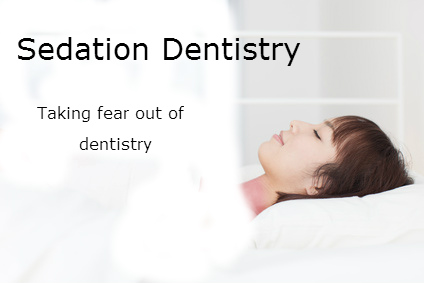
Many people suffer from dental anxiety, which frequently keeps them from getting the necessary dental treatment. This problem can be solved by sedation dentistry, which provides a range of sedative techniques to make patients feel at ease and calm throughout dental operations. Several forms of sedation dentistry are discussed in this article along with its advantages and what patients may anticipate when they choose to have sedation during their dental visit.
Understanding Sedation Dentistry
Using medication to assist patients relax during dental operations is known as sedation dentistry. It is very helpful for people who feel uneasy, afraid, or anxious in the dentist’s chair. There are several degrees of sedation, from light sedation, which keeps the patient alert but at ease, to general anesthesia, which renders the patient comatose.
Types of Sedation Dentistry
- Minimal Sedation
The least intense type of drowsiness, known as minimal sedation, is frequently produced by nitrous oxide (laughing gas) or oral sedatives. Patients feel comfortable and at ease despite still being awake. Routine operations like cleanings and minor dental treatment are appropriate for this dose of sedation.
- Moderate Sedation
Moderate sedation, also known as aware sedation, is usually delivered either by oral medicine or intravenous (IV) sedatives. Although they may not recall much of the process, patients stay awake. For patients experiencing moderate to severe dental anxiety or for more complicated treatments, this kind of sedation is perfect.
- Deep Sedation
Giving patients a medicine that pushes them to the brink of consciousness is known as deep sedation. Patients may be woken, but their awareness of their environment and their recollections of the surgery may be restricted. When receiving extensive or invasive dental procedures, deep sedation is needed.
- General Anesthesia
Under general anesthesia, the patient loses all consciousness. Usually, it is saved for patients who require substantial dental repair or who have a serious dental fear. A dentist with specialized training or an anesthesiologist provides this type of sedation.
Benefits of Sedation Dentistry
- Alleviating Anxiety
The main advantage of sedation dentistry is its capacity to reduce fear and anxiety related to dental procedures. People with anxiety who have shied away from the dentist for years can now get the care they need without feeling pressured or uncomfortable.
- Pain Management
In addition to reducing anxiety, sedation dentistry improves pain control. Patients can feel less pain during dental operations thanks to sedation, which also helps to lessen or remove discomfort.
- Increased Comfort
Dental treatments can be more comfortable for patients who have a strong gag reflex, sensitive teeth, or trouble staying still if they use sedation dentistry. It makes the dentist’s job easier and more productive.
- Improved Dental Health
Through sedation dentistry, patients are encouraged to seek regular dental treatment by making dental visits easier to endure. As a result, oral health problems are identified and treated early, improving overall dental health.
- Efficient Treatment
In a single appointment, sedation dentistry enables dentists to complete several treatments. This minimizes the number of appointments and treatment duration, which is very helpful for patients in need of substantial dental work.
What to Expect with Sedation Dentistry
- Consultation and Assessment
During the initial consultation, the dentist evaluates the patient’s medical background, degree of anxiety, and individual requirements. This evaluation helps in determining the kind and dosage of sedation that is most appropriate.
- Pre-Procedure Instructions
Prior to their consultation, patients will be given detailed instructions to follow. These might include prescription usage rules and food limitations.
- Administration of Sedation
The selected sedation technique is administered by the anesthesiologist or dentist on the day of the treatment. Throughout the process, the patient is observed to guarantee their comfort and safety.
- Post-Procedure Care
Patients are given time to recover from the sedative effects following the surgery. They’ll need someone to drive them home because they could feel sleepy. To guarantee a seamless recovery, dentists give post-procedure care guidelines.
Is Sedation Dentistry Right for You?
- Consider Your Anxiety Levels
If you experience significant anxiety or fear about dental visits, sedation dentistry may be a suitable option. It can make dental treatments more bearable and help you maintain regular dental care.
- Discuss with Your Dentist
Discuss your concerns and medical history with your dentist. They can recommend the best sedation option based on your specific needs and the complexity of the procedure.
- Understand the Risks
While sedation dentistry is generally safe, it does carry some risks, especially for individuals with certain medical conditions. It is crucial to discuss any potential risks with your dentist before proceeding.
- Evaluate the Costs
Sedation dentistry may involve additional costs that are not always covered by insurance. Consider discussing payment options and potential costs with your dentist during the consultation.
Conclusion
For those who experience dental anxiety, sedation dentistry is a helpful option that enables them to obtain vital dental care in a calm and relaxed setting. Patients may make educated judgments regarding their dental treatment by being aware of the various forms of sedation, their advantages, and what to anticipate. If your fear of the dentist has been preventing you from maintaining good oral health, talk to your dentist about sedation dentistry and find out how it may make your visits more enjoyable.
If you have any further questions or would like to schedule a teeth whitening consultation, please don’t hesitate to contact us at St James dental Group 323-771-7254. Our team of skilled dental professionals is always here to provide you with the highest quality care and help you achieve the smile of your dreams.
By: Ladan Zinati
